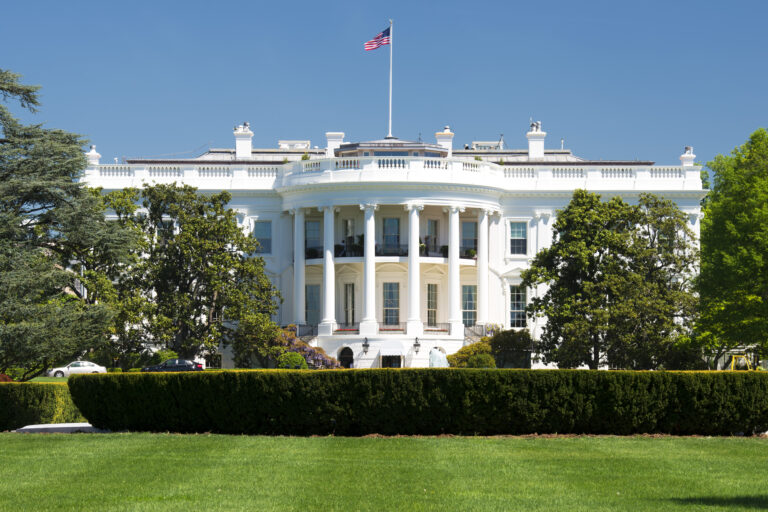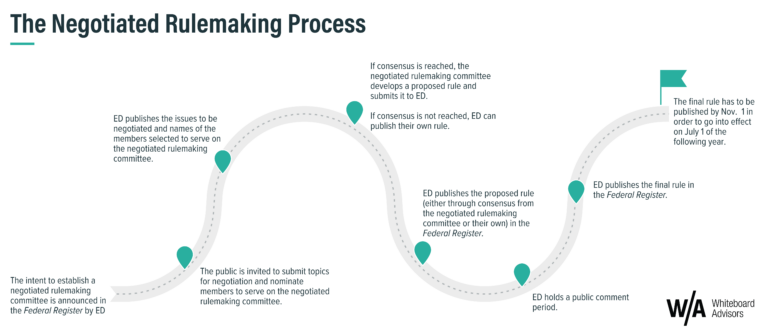Community College and Industry Partnership Grants Overview
The Community College and Industry Partnership Grants is a proposed program that appears in the House Committee on Education & Labor’s portion of the Build Back Better Act, a signature piece of President Biden’s agenda proposing ambitious jobs initiatives.
The program is currently proposed to be funded at $2 billion over 4 years. Grants would be competitively awarded to eligible institutions who intend to expand workforce development and employment opportunities in high-skill, high-wage, or in-demand industry sectors or occupations.
Who would be eligible?
Public or nonprofit higher education institutions or a consortium of higher education institutions where:
- Associate degrees are the highest degree awarded or the predominant degree program; and
- That are working directly with an industry or sector partnership or are in the process of establishing such a partnership
What can grants potentially be used for?
Institutions would have to submit an application including a description of the related programs, recognized postsecondary credentials, and employment opportunities.
As proposed, institutions can use grants to:
- Establish, improve, or scale high-quality, evidence-based education and training programs such as career and technical education programs, career pathway programs, and work-based learning programs (including programs of registered apprenticeships or pre-apprenticeships)
- Create, develop, or expand articulation agreements, credit transfer agreements, corequisite remediation programs, dual or concurrent enrollment programs, or policies and processes to award academic credit for prior learning or career training programs
- Make available open, searchable, and comparable information on curriculum or recognized postsecondary credentials and information on the related skills or competencies and related employment and earnings outcomes
- Establish or implement plans for providers of programs supported with these funds to be included on the eligible training services provider list of the Workforce Innovation And Opportunity Act
- Purchase, lease, or refurbish specialized equipment necessary to carry out the education or career training programs supported by such funds
- Reduce or eliminate out-of-pocket expenses related to participants’ cost of attendance in an education or career training activities for programs supported by these grants
- Establish or expand industry or sector partnerships to successfully carry out these activities
History of Similar Grant Programs (e.g., TAACCCT Grants)
The Community College and Industry Partnership Grants are very similar to previous investments made to help community colleges address workforce challenges.
- The Department of Labor’s Trade Adjustment Assistance Community College and Career Training (TAACCCT) program awarded $1.9 billion over 4 years through September 2018. Under this program, every state received funding for each of four years through 256 cumulative grants. 60% of publicly-funded community colleges benefited from this program and through it built industry aligned programs in manufacturing, health care, information technology, energy, and transportation.
- The Department of Labor’s Strengthening Community Colleges Training Grants program awarded $40 million in grants in January 2021 to build the capacity of community colleges to meet the labor market demand for a skilled workforce. Additionally, the grants helped community colleges address challenges brought on by the COVID-19 health crisis. Grants were awarded to 11 community colleges in 10 states and ranged from up to $2 million for single institutions and up to $5 million for consortium recipients.
Current Congressional Outlook
Democrats had hoped to vote on the $3.5 trillion Build Back Better Act in its entirety concurrently with a vote on the bipartisan $1 trillion infrastructure bill by the end of September. However, the $3.5 trillion reconciliation package is not yet complete and will likely be reduced in size to gain the support of moderates. As of September 27, Democrats have abandoned this two-prong strategy and will first move the $1 trillion bill. The timing and future of the reconciliation package is now unclear.




